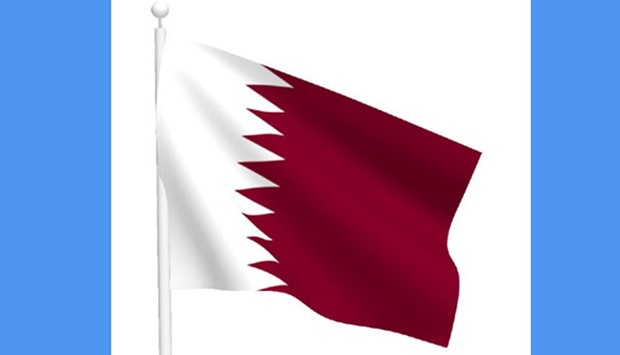Qatar on Thursday marked the United Nations Day as part of its efforts to raise public awareness about the UN Plan for Sustainable Development 2030 and the Plan of Action for Humanity, which are critical to the success of national development plans.
The event was attended by a number of ministers and heads of diplomatic missions accredited to the state, representatives of government agencies, charitable organisations, youth organisations, civil society and research institutes.
The ceremony was held at the Qatar National Library with the support of Qatar’s Ministry of Foreign Affairs and United Nations agencies based in Qatar represented by UN Secretary-General’s Envoy for Humanitarian Affairs Dr Ahmed bin Mohamed al-Muraikhi, United Nations Educational, Scientific and Cultural Organisation (Unesco), the International Labour Organisation (ILO) and the United Nations High Commissioner for Human Rights.
In this context, Dr al-Muraikhi praised Qatar’s great role and contributions in supporting the Charter of the United Nations by backing international efforts for peace, leading efforts to combat terrorism, promoting interfaith dialogue, participating actively in the United Nations Human Rights Council, and leading role in initiatives to unlock human potentials in education and health, which, in turn, contributes to the well-being of society.
He stressed that UN Day is an event for debate and action, and an opportunity to highlight the efforts and work of the UN and to rally around the goals and principles for which the organisation stands, pointing out that humanitarian disasters have been affecting a large number of people for a longer period of time and humanitarian needs will remain significantly high.
Dr al-Muraikhi pointed to the existence of more than 132mn people in 42 countries around the world in need of assistance and protection, and said that natural disasters and climate change phenomenon have a high human cost that affects the average 350mn people every year, causing losses of billions of dollars, adding that the economic gap and the global disparity between the rich and the poor are increasing rapidly and reaching unprecedented levels.
He stressed that there is hope in the efforts of the United Nations to highlight the dignity, equality and well-being and restore hope to the dark places, pointing out that the celebration of UN Day reflects the individual commitment and collective resolve to promote the concepts of the UN Charter and build a better world for all.
Dr al-Muraikhi said that the United Nations depends on the effective diplomacy of member-states, and that the UN is also peacekeeping forces, a health worker distributing medicine, a relief team that helps refugees and a human rights expert who helps to achieve justice.
The UN is all those who translate the principles and concepts of the Charter of the United Nations to a reality on the ground, he said, stressing that the world without the United Nations will be very bad.
He highlighted that the UN has the 2030 sustainable development plan that leads to a more sustainable future for all human beings, noting the humanitarian agenda that alleviates suffering, reduces risk and lessens vulnerability, and which the United Nations adopts for the safety and dignity of people their right to prosperity, which are at the heart of global decision-making in humanitarian response plans.
Dr al-Muraikhi added that the achievement of these goals requires the continued commitment and dedication to the UN Charter.
Through partnerships with States and non-governmental organisations, the global challenges that the Charter seeks to address can be tackled.
For her part, Director of the Unesco Regional Office in Doha Anna Paolini praised the role and interaction of Qatar with the UN since joining it by contributing to its regional and international work and assisting in its humanitarian work around the world.

